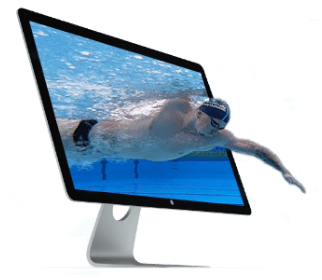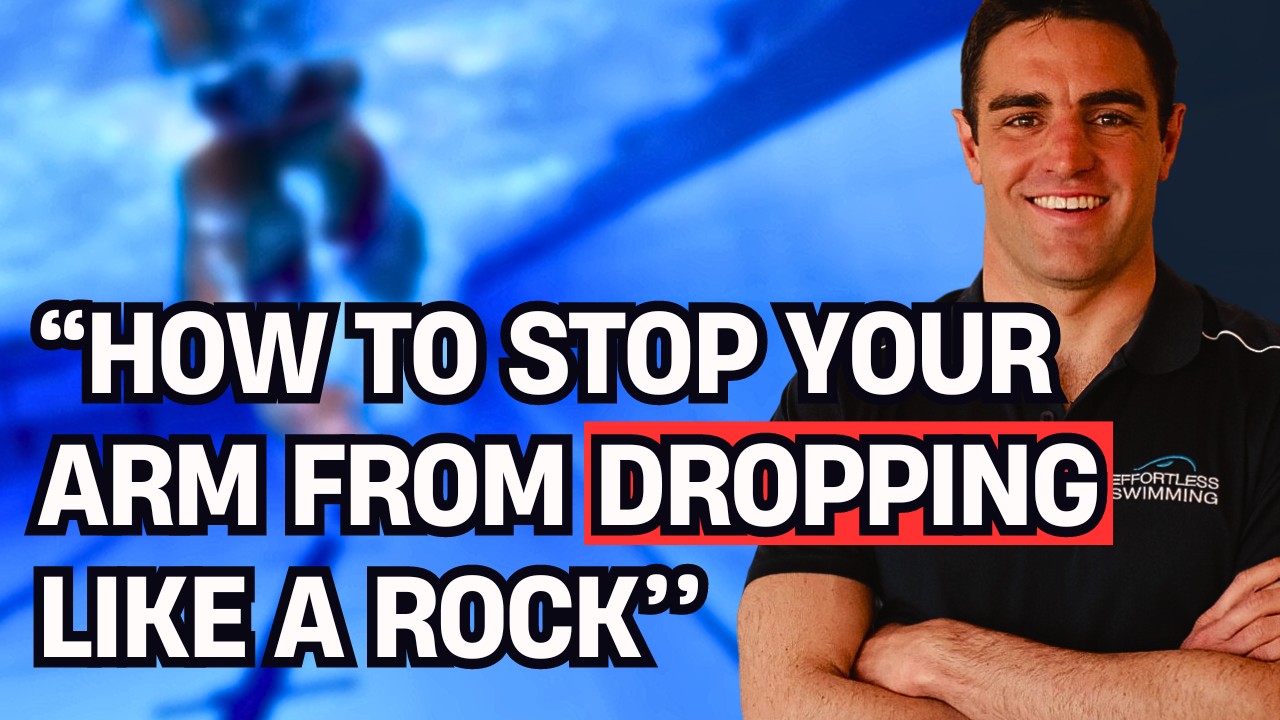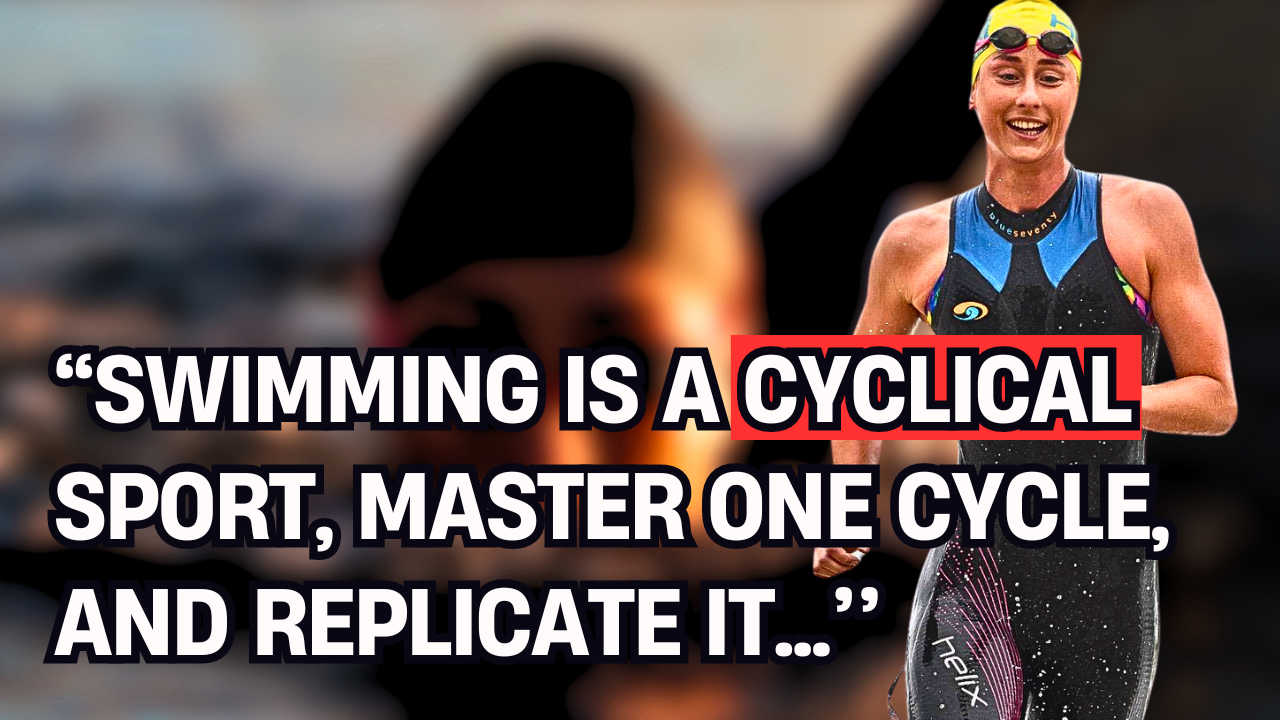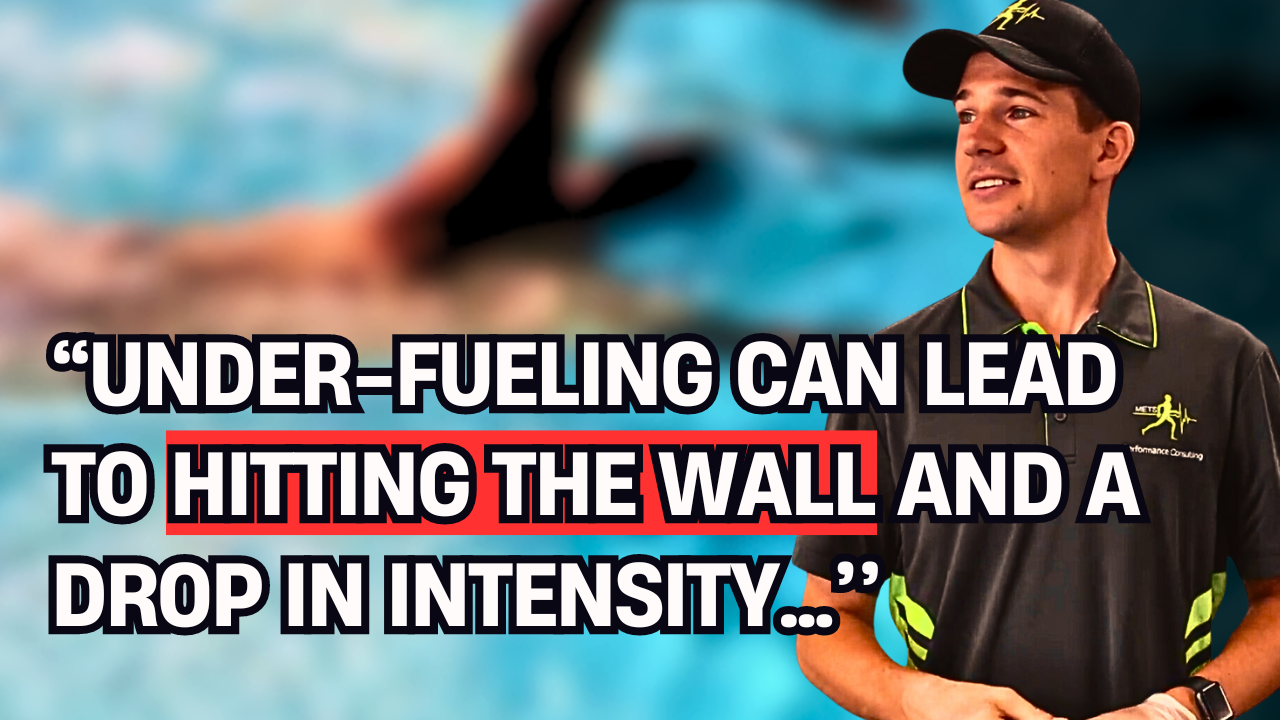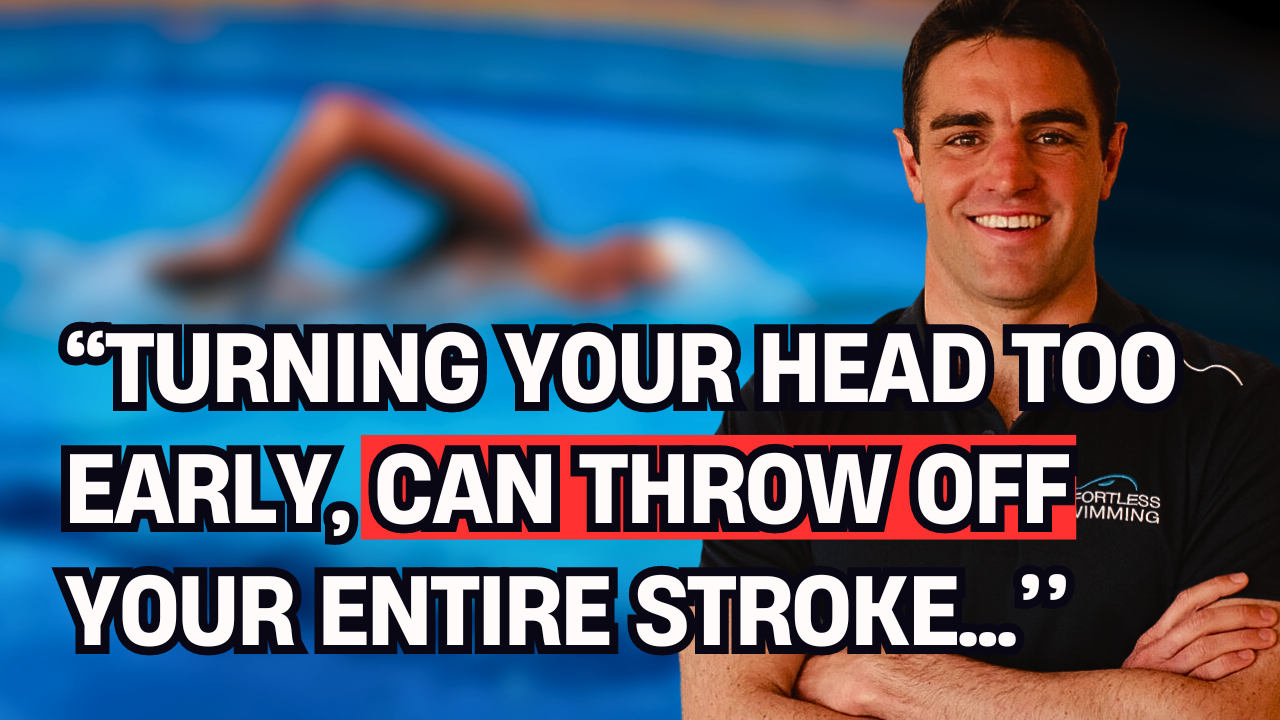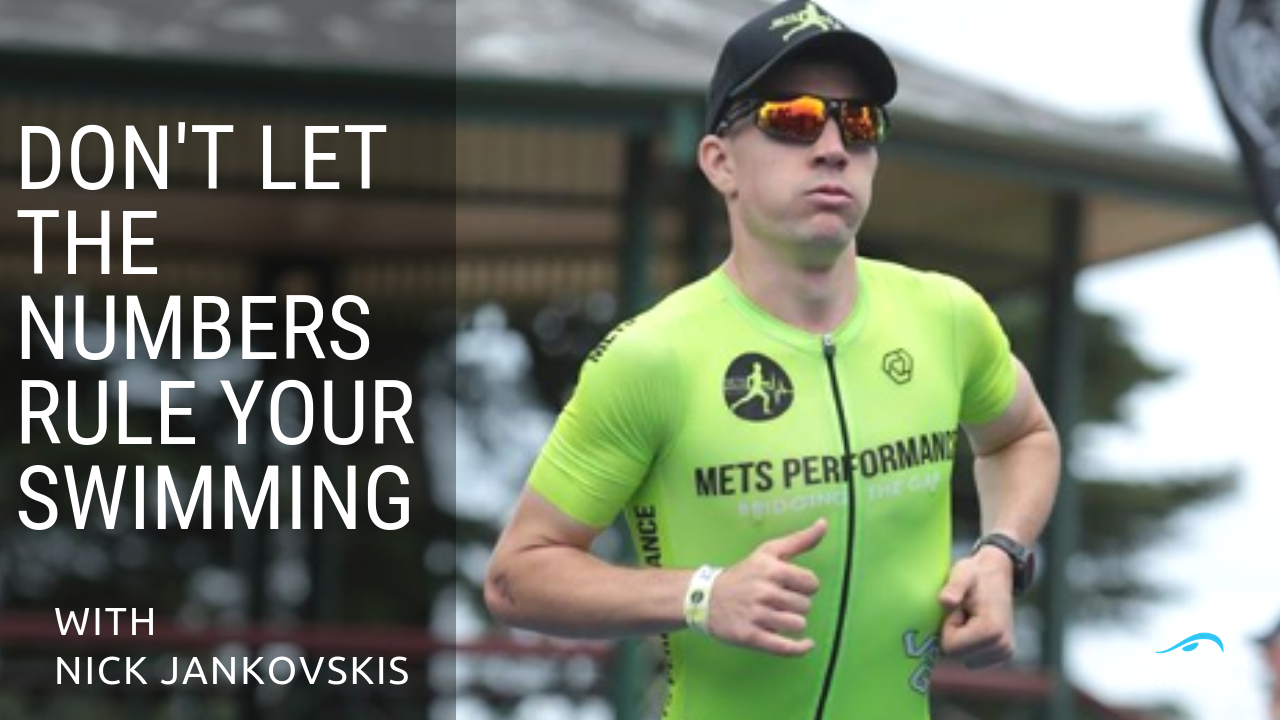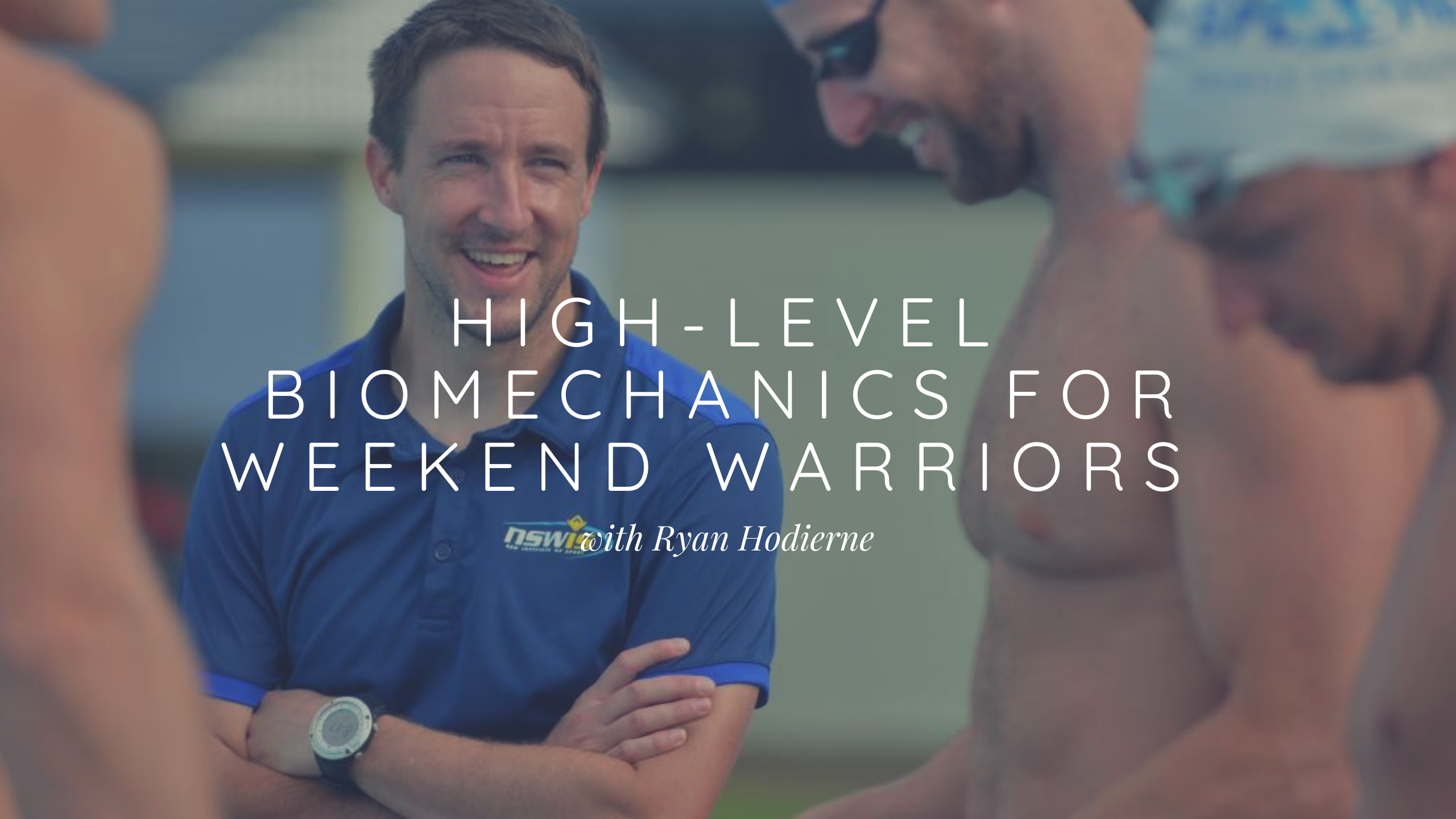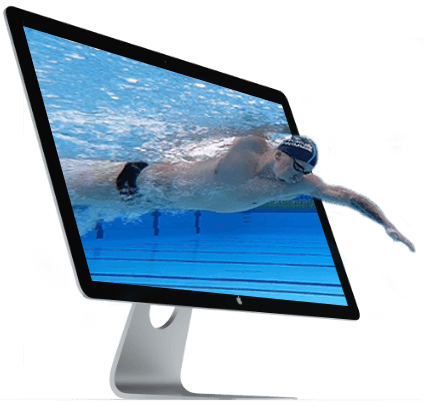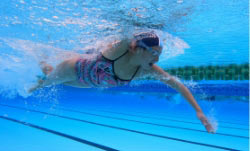My guest is Tim Ford, who is someone I’ve known for the last few years, and a number of years ago, he started his triathlon journey and over that time he’s lost more than 50 kilos. He’s completely changed his life with respect to his health, his fitness, and his work, and I think it’s a really good story to share on how a simple idea can spark a complete life change in someone.
On today’s episode, we look at what are some of those things that Tim has changed to turn around his life and become a completely different person and we also share some of the things that we feel can help other people become better athletes, whether that’s a triathlon or whether it’s swimming. And focusing in on the things that you can control and that you can change and why it pays to always have a longterm approach to this stuff.
03:07 “I Stopped Weighing Myself When I Reached 120 Kilos.”
05:11 “My First Triathlon Was A Disaster”
07:20 “I Bought A Fancy Carbon Fiber Bike After My First Race”
09:11 Triathlon Is More Of A Race Against Yourself
10:13 What Motivates You?
12:14 Little Improvements
15:24 The Switch
20:07 When Your Hobby Becomes Your Job
21:33 Being A Coach
25:17 “I’d Rather And Potentially Fail At Something That I Really Care About, Rather Than Never Try At All”
27:35 Collaboration Is The Most Underrated Thing In Our Sport
30:55 Stepping Out OF Your Comfort Zone
32:37 Hardwork and Commitment Often Leads To Good Things
33:04 Leaving The Judgement Aside
39:05 Coming Up For Tim Ford
Transcription:
Brenton Ford: I’d like to welcome Tim Ford to the podcast. So Tim, everyone thinks that we are related, that we’re brothers, maybe cousins. I’m not sure. Maybe we are, but I haven’t found that to be the case just yet. But I think we could easily be mistaken for brothers. So first of all, welcome to the podcast and maybe we can be quasi brothers or cousins.
Tim Ford: Thank you so much. I think it’s the good looks mate, and we both swim-
Brenton Ford: That’s got to be it.
Tim Ford: … But blessed with such good looks, it’s hard for people to mistake the two. I mean, it’s an easy mistake to make. So thank you so much for having me. I really appreciate the opportunity to come onto your show and have a bit of a chat. I really enjoy doing this stuff, so yeah, thank you so much.
Brenton Ford: Oh, it’s my pleasure. And we’ve sort of known each other for a couple of years and sort of cross paths a bit obviously through triathlon. And one of the things I want to sort of focus in on, on this podcast today is how much of a change you’ve gone through personally, in sport and I guess just general sort of lifestyle over the last five to 10 years. And some of the people who are listening to this may know your story from where you came from to where you are now, but I think it’d be really good to just cover what your life was like five to 10 years ago and what you’re currently doing now. So, in terms of what did life look like about 10 years ago, what was that for you?
Tim Ford: Yeah. I think 10 years ago is, what are we talking? 2009, I was working full time in digital marketing and hospitality and I was neglecting my diet, and I was not exercising. I was drinking more nights a week than I wasn’t, and I guess I just didn’t really even think about health as something you’re even worried about? I was like, I’m young, it’ll be okay, it’ll be okay. And I also think when you probably do neglect your health, it’s very easy to push those sorts of things out of your mind so you don’t ever really dwell on them. And I was getting bigger, and bigger, and bigger and I used to always say to myself, “As long as I’m under a hundred kilos, it’s okay. As long as I’m under 110 kilos, it’s okay. As long as I’m under 120 kilos, it’s okay.”
Tim Ford: And then once I sort of got over that 120-kilo mark on the scale, I stopped weighing myself because I guess it was very difficult to turn a blind eye to that number when rationally you know that it shouldn’t be that high probably. But I just didn’t really worry too much about it, kept going on my way and I was really lucky to have this English guy, his name was Rob Wooly, he came and worked with me at the same hotel that I was working at. And I remember he was skinny as a rake and he was always getting up crazy early to go swim and run and bike and all this stuff. And he told me he was doing this thing called a half iron man. I was like, “What’s that?” He goes, “Well, you swim two kilometers or 1.9 kilometers, you ride 90 kilometers and then you run a half marathon.”
Tim Ford: And I laughed at him. I literally was like, why the hell would you want to do that? Like that sounds horrific. And yeah, off he went and we actually ended up living next door to each other, so we started to hang out a bit. And I remember like probably a couple of months later, the beginning of 2010, it was my birthday and he said, “I want to sign you up for a triathlon for your birthday.” And I was like, yeah, okay, why not? I couldn’t do that. Never actually thinking about the implications of what that would mean or what work I would need to do to get there.
Tim Ford: And I said, “Yeah, let’s do it.” So he signed me up for the Byron Bay Triathlon, which is on the North coast of new South Wales and I did it, and I probably put weight on in preparing for that race. I had absolutely no idea what I was doing. I just went, Oh, I’ll just swim a bit, I’ll just run a bit, I’ll just ride a bit and it was a disaster. It was an absolute, it was horrific. Took me four hours and five minutes to complete that race, which these days takes me about two hours to finish. I was absolutely dead last, I think. You just name it, a day before the race went and hired a wet suit because you’re told you need a wet suit and went and got a big heavy surf wet suit that of course didn’t fit me properly because I was so overweight and I had to take it off about 400 meters when I was swimming. I remember going up to one of the spotters on their boards and saying, “Do you mind if I take this wetsuit off? Can you take it into the surf club for me? I’ll pick it up after the race.”
Tim Ford: I think after the race realizing I had a flat tire, I don’t know how long I had that for. I think it’s funny to look back at what was actually a comedy of errors, but obviously worth it because yeah, I guess something flicked, a switch flicked in my head at that race or something I guess. I think one of the things I would say to people is, I’m the sort of person that if I am going to do something, I do try to do it properly. And I definitely walked away from that race feeling like I didn’t do it properly, so I wanted to do better and yeah, sort of kick-started things.
Brenton Ford: And how long after that race did you race again or start training? Was there a gap in between? Or did you just look at it and go, okay, I think I can do better than that, and you just got straight back into it? Or was there a point in time where you went like, that was a good birthday present, but I’m sort of done there?
Tim Ford: I think I remember that I really enjoyed the bike lake, but I think one of the things, when you’re big exercise hurts a lot. I mean it always, it hurts now, but it’s just different sort of pain I think. And I remember thinking that bike was actually okay. So I’d gone away and I bought myself a fancy carbon fiber bike, pretty much straight after actually. I remember I was pretty motivated, most people who’ve ever done sort of any race will know that there’s nothing quite as motivating as finishing a race and going, I want to do another one. So I started training again, I guess a bit more serious, probably a month or two later, nothing too specific. Did a lot of bike riding or by those standards, a lot of bike riding with my mate, my mate Rob. And it wasn’t until probably the start or the end of that year, 2010, 2011 where I picked a race that I wanted to do in July. And that’s when I started to, I guess really focus on the how, I actually wanted to do better at this event. I set of challenge for my wife and two of her friends that they were going to do a relay, and I had to go faster than their relay team did.
Tim Ford: So the race was in July and I think I went 02:45:00 at my second triathlon, which the main thing for me I remember that day was, I just wanted to be able to run the 10 kilometers. I was like, if I can run the 10 kilometers without walking, probably 9.5 like I think I did at that first one, I’ll be happy. And I did, I managed to run the whole 10K. I was over the moon and then I think a year later I did that race again and went 02:24:00, and then not long after did my first 70.3. So that was sort of my progression into the sport was more like, I guess, and has always has been, it’s about beating myself, always trying to improve on my performance rather than, no, I’ve never really been one motivated by racing other people, or beating other people or anything like that.
Brenton Ford: I think triathlon’s a big one for that isn’t it? Because there’s so many different ways that you can improve and get faster, so many different things you can change and test and it’s a real race against yourself. And I remember seeing one of your posts pretty recently, I think from the Sunny Coast Tri, where you said you were disappointed with your time, you thought you could have gone a bit faster with it.
Tim Ford: Yeah.
Brenton Ford: But looking back over the last few years, let’s say a couple of years ago, four or five years ago, you look at the time that you did, you’d think, wow, that is amazing. And it’s very easy to forget where you’ve come from and just sort of look at where you are now. But yeah, it’s one of the harder things to do I think, is just to reflect and look back at how much you have improved and where you… Like you’re a very, very good age group triathlete now and very competitive, and really in that upper part of the field and racing a lot. So what motivates you now? Is it the similar things? Is it trying to just beat your own times, or is there other things that are motivating you now compared to a couple of years ago?
Tim Ford: I think the big one for me, and I didn’t ever really set out with this goal, it just sort of, I stumbled across it. At some point, I thought that’d be cool, was, I’m now trying to complete a 70.3 in 04:05:00, because that was the same amount of time it took me to do that first Olympic distance race. And that really motivates me, that’s something that I really draw on a lot when I’m maybe struggling, or not that motivated, or whatever it is, I remind myself of that goal. And again, I’m very happy to admit that there’s a very good chance I probably won’t achieve that goal, but working towards it is something that I find incredibly motivating. And I think the big one for me, and again, I never really set out for this to be the case, but I’ve had a lot of people who have said that they’ve found what I did inspiring and therefore they thought that a lot of people have lost weight because they’ve seen what I could do and thought, yeah, I can do that too.
Tim Ford: And that’s something that I also really am motivated by, or I think whenever I race and I’m doing a turf, I get this idea that there could be some person who’s thinking about doing their first triathlon, If they say, “Oh, I hate this, it’s terrible,” it might turn them off. So that always sort of makes me want to go, and again, I always try to do my best because I want people who are thinking is impossible, this is hard or this is not something I can ever do to. Guess you what? Yeah, okay. If Tim can do it, I can, because I really mean this.
Tim Ford: I get asked all the time, what’s the secret to weight loss? I am the most ordinary stock standard guy out there, that there’s absolutely nothing exceptional about me. And I did it and I thought I couldn’t do it. So if I can, there’s absolutely no reason why anybody else who’s out there struggling with their weight, or their health, or whatever, couldn’t do it as well because yeah, there’s nothing extraordinary about me whatsoever.
Brenton Ford: And I think so many things, the answer to so many things is often a lot simpler than what we imagine them to be as well. Like how do you get better at swimming? How do you get better at triathlon? Well, eat well, do it consistently, do it regularly, maybe get a coach and just follow that over the course of months and over the course of years. And look at yourself three, four, five years later and there’s a very good chance that you’re going to make that improvement. And if you follow that and you can be consistent with it, it can make a big difference.
Brenton Ford: And one of the things I really enjoy about coaching swimming is, when people come into swim, they might come into a clinic, they’re doing triathlons and the swim is their least favorite leg, a lot of people say they really don’t enjoy it. But when they turn that around, and they do start to enjoy it because they might have a few different things they can now focus on, they’re seeing these little improvements happen over time, then they start to get addicted to that, and they really start to enjoy it and they change their whole mindset and perspective around going to the pool, or swimming in the ocean, or approaching their races.
Brenton Ford: And I think it’s the same with competing in tris where, as you said, when you’re unfit, when you’re unhealthy, that pain is a different kind of pain. It’s a really sucky sort of pain, but as you get fitter and better at it, for me at least, I really enjoy that sort of struggle and that pain. But if I’ve had a couple of weeks out of the water, it’s not a fun sort of pain.
Tim Ford: I think what you just said there, I can think of a real tangible example of that. And that’s a few years ago, I really wasn’t enjoying my swimming and this is before I’d ever done one of your clinics or anything. But you brought out those, the out of track on swimming videos.
Brenton Ford: Yeah.
Tim Ford: And I remember I bought the series and I watched them, and it was Clayton Fettel doing all the, the super fish Clayton Fettel, and I think it was Annabel Luxford maybe was in the video as well?
Brenton Ford: Yeah.
Tim Ford: It was swimming. And I remember I went to the pool and just focused in on a few of those things that I did in the videos. I was suddenly really motivated about swimming again because it gave me something other than constant thinking, “Oh, I hate this. Oh this is boring. Oh this is no good,” to suddenly being like, actually focusing on parts of my swimming. And I remember I got really motivated, and you’re really right about the racing thing. Like I say to people, I love the pain the next day, that feeling of DOMS in my muscles the day after a race, it’s almost like a badge of honor because it tells me that I’ve actually really pushed myself to my limit.
Tim Ford: And like I said, you’re right. I had a race a few weeks that I wasn’t very satisfied with my results. I was definitely happy with my effort, but I feel like I could have been better, but I was not that sore the next day and I was a bit like, yeah, I’m a bit disappointed about that because it shows that I didn’t give everything physically that I could have, and yeah, it is. There’s something very rewarding or satisfying about that pain these days. Whereas when you’re bigger or you’re unfit, it’s not play. It’s just like, Oh, this is the worst, this is so bad. Why am I doing this to myself. It’s a different conversation.
Brenton Ford: Yeah. And I think as well, when you get to that point where you miss, if you don’t exercise in the day, and you’re really annoyed with yourself, “Geez, I really need to get some physical exertion happening here. I feel like I really need to sort of let go of this built up energy that I’ve got.” That’s a very different approach than going, “Oh, I have to go and exercise, I have to go and run.” And it’s that sort of switch that really makes the difference. And I’ve just had that over the last couple of weeks and couple of months where over winter it happens every time. I tend to not train as much, and I’m a bit soft with the cold and all of that, but coming out of winter leading into spring and summer, I just get really excited about the upcoming season of swims, and I’m going to start to do some off-road tris and I’m just really excited about it.
Brenton Ford: And so now I’m getting to that point where every day I just want to try and at least run or swim, whatever it might be, and I’m looking forward to it. And if I don’t get something done that day, I’m annoyed with myself, and that’s how that consistency’s starting to build up now.
Tim Ford: That’s what I say to people as well. I think I’ve gotten to a point in these days where it’s not even a case of, if I can do my workout, it’s I’m going to do it. It’s just part of my routine now, like I’ve made it. It’s not even a case of prioritize. I think consistency is such a big part of that. I’ve done this now for so long, where that’s just how I operate my days. I do my work when I need to, I do my training when I need to, and I just feed everything in. So yeah, there’s some days where I don’t do something where maybe something comes up, and my wife will just go, “Just get out of the house and go for a run or something. Well, you’re killing me, you’re a nightmare, just do some exercise. You’re going hyper.”
Tim Ford: And even the relationship with exercise has changed a lot for me. I used to always, yes, think of it as this thing you have to do where now, like for example, running for me, a long, long time I hated running and then I don’t know, something switched in my head. And I think my long run is probably my favorite session now because it’s like almost, it’s my most selfish time for me. I never take a phone with me. I always like listen to an audio book or podcast or something that I want to listen to, and it’s just my time. And I’ve really, really come to really enjoy that part of my week, and it is. When I think when you start to think about your activities in that way, rather than, okay, I’ve got to check this off the list or whatever, it does just change your whole approach to make it a lot more enjoyable.
Brenton Ford: Yeah, I can relate to that. A couple of years ago when I built up and did Tapou, Ironman, those long runs where I was running down Beach Road here in Melbourne, and the longer runs, 15 up to sort of 25 and I think maybe 30Ks for the longest one, it was so enjoyable because it’s like you just sit at this steady pace, and you just listen to your footsteps and your heartbeat and you just get into this really nice rhythm and routine where you’re not really thinking about much else, and you’re just in the zone. And was doing this over, leading into the Rottnest Channel Swim. I was training with a friend down at Half Moon Bay and we were doing our longer swims on a Wednesday morning and pretty much every time, except for once or twice. We got these great conditions where there’s no wind, the water was like a lake, and it’s just peaceful. The sun’s starting to come up as we’re swimming, and we’re swimming for two, three, three and a half hours and we were kind of just going straight for stroke next to each other, and it was just beautiful.
Brenton Ford: I couldn’t think of anything else I’d rather be doing than that at the time. And it’s that that really sort of clears the mind. And then after that exercise in the morning, I’m thinking so clearly with, all right, what do I need to do, work wise and coaching and everything and it just can set you up very well for the day. And I can relate to, my wife, she can tell if I haven’t exercised and same thing, she’s, get out of the house, just go do something. She’ll be kicking me out the door, because I’m a better person once I’ve exercised.
Tim Ford: Yeah. I reckon you’re right there. There’s something about, especially swimming, I do a lot of my open water swimming at Bondi Beach in Sydney and I think one of the… We are very lucky in Sydney that even in winter you can still swim in the ocean, it’s a little bit cold when you get in, but there’s been so many mornings when I’ve gotten up, and I don’t live very close to the beach here, so that’s a good 40 minute drive for me to get there. But as soon as I’m done, I go like, man, this is such a good way to start the day. Like there really is something about, especially swimming I think, where you’re always, apart from the insane appetite that I always seem to get after a swim, there’s something very nice about just starting the day, the sun comes up, you got that sunrise, and you’re in the water, and it’s beautiful and flat and calm, and yeah, it’s amazing.
Brenton Ford: Yeah, absolutely. And you’ve sort of changed work-wise what you’re doing now. So you’ve basically, you’ve gone full in with triathlon as the CEO of MX Endurance. You run, well, you host two podcasts and everything is around sport and triathlon. So what’s that change been like for you in terms of, I guess happiness around the work that you’re doing and the purpose around the work that you’re doing? What’s that been like for you over the last couple of years as you’ve moved into it?
Tim Ford: I still have to pinch myself a lot of the time. I still can’t really believe that this is what I do now, it’s so funny, I was finishing, I went away and studied law, so I’ve just graduated law degree 18 months ago. And it was around that same time where Maca asked if I wanted to run the team for him, and I was like, are you sure? Me? And it’s been incredible. I think there’s been some challenges that I don’t think a lot of people will probably, a lot of people think I’d love to do this. This is what I’m passionate about, it’s my hobby. I think that the biggest thing that I’ve been shocked by is, I’ve had to almost set a lot of very strict boundaries because it’s very easy when your hobby becomes your job to work a lot more without realizing it, and that’s been something that for me that I struggle with, I struggle with for quite a while.
Tim Ford: Again, my wife would be like, “You’re on your laptop again. What are you doing? What are you doing? What are you doing?” But it’s incredible being able to, I guess play such a part in other people’s journeys through the sport, which is something I’m really grateful. And like you said, that the coaching thing. So I coach, I’ve got a fairly substantial number of athletes at the moment that I never imagined I’d be a coach, ever. Like I never, it’s almost a bit of a triathlon cliché, I think these days you become an age group athlete, you get a race wrong, you almost become a coach. I never thought I’d travel that path. For me it was, I do this sport to improve myself. And it wasn’t until I had some athletes approach me and ask if I’d coach and I was like, okay, I’m happy to give it a go on it.
Tim Ford: I found, like I do with the MX thing, the satisfaction I get out of other people’s success is, I think I almost get more excited when people I coach or work with do well than when I do myself. I can’t even explain that feeling. And it’s something that I’m sure other people who coach out there get. That you see as a coach, or again with MX, the work people put in, that I think when you’re doing it yourself, you’re not always aware of. I think it’s very easy to get caught up in what you’re doing and just focus on that end goal. Whereas as a coach, I see the whole picture a lot of the time and you see that person, you see their struggles, you see them dealing with things. They might have a family problem that comes up so they miss a week of training, or they get sick, or they get a little bit injured, or whatever it is and then you see them get to that race and exceed their expectations, or meet their expectations or whatever and I love it. I absolutely love it so much.
Tim Ford: And like I said, I am under no illusions of how lucky I am to have the career I now have. There’s not many people who have a sporting hero who asks them to come and run their company for them. And I still sit there in meetings with Maca and I have to pinch myself sometimes. I’m like, holy shit, this is real, this isn’t a dream. At the same time I find it, I think it’s probably, I put a lot of pressure on myself for that as well because I am working for somebody that I’ve idolized. I don’t want to let him down a lot of the time as well, so I think that’s probably why I do work as hard as I do about it. But yeah, it is crazy to think that 10 years ago I was working in marketing and hospitality and here I am, my entire life now basically is about the endurance sports coaching and triathlon. And it’s surreal and I am aware of how lucky I am, and I’m very grateful for that as well, I think.
Brenton Ford: Yeah. And it’s great to say, because it’s very easy to get stuck doing what you’re doing and thinking that there’s no other options out there. And looking 10 years ago, I’m sure you would have never thought that this is something that you’d be doing, and coaching people in triathlon and obviously running MX Endurance as well. And I remember when I first, well, when I first started Effortless Swimming I thought, what right do I have to be coaching or teaching other people? Like who am I to do that? And yeah, maybe in the very early days, maybe that was true, I had no experience as a, very little experience as a coach, I’d just been an athlete. But over the last 10 plus years start, I feel like we get a pretty good sense of how we can help people and what makes a difference with their swimming. And you just get that experience and you build that confidence. And you work with more athletes, and you’re able to help more people and find out what works with them and you continue to build on that success and that confidence. And there’s no reason why where you’re at today has to be where you going to be for the next five, 10, 20 years.
Tim Ford: It’s exactly right and even easier. I find it quite funny, especially my grandparents were always like, “But what about your law degree?”
Brenton Ford: Yeah, it’s funny.
Tim Ford: And I said to my nana, I say this to her all the time, like, “Nana, my law degree is not going anywhere. And I’d rather try and potentially fail at something that I really care about rather than never try at all and just go into something that I don’t, not want to do, but I’m not as interested about.” And yeah, I took a chance. And that’s the thing, law’s a pretty good backup to have, marketing’s a pretty good, I’m pretty sure that should all this fail as I’m constantly worried that it will, I’ll have things to back myself up with. And I think the coaching thing is really, really interesting too, because I think when I started, you’re right, I was like, I have no right to be telling people what to do. I barely know myself a lot of the time. And I think it was for myself, I was very quick to put this label, ‘I coach beginner athletes.’ ‘Oh, don’t, I’m not a real coach, I just worry about people who are trying to lose weight. I’m just helping them.’
Tim Ford: And it wasn’t until I started to have athletes go better and better, and I think I had a guy coached last year, and he went 04:20:00 on debut to 70.3. And I am not claiming responsibility, he’s an incredible, Luke is an incredible athlete, but it made me go, this isn’t a beginner athlete. Like that’s pretty impressive for a first and I’ve coached him for nearly two years. Maybe I need to stop considering myself purely a beginner coach now and, and I think with most things, what you put out is what you get back. And without even realizing, I picked up a stable of quite good athletes. I absolutely still think I gravitate a lot towards those beginner guys who want to lose weight and that’s my niche, my comfort zone. I think I have a lot of experience that I can give them, but yeah, I have definitely, through experience as you said, because you know, unintentional intention. I’ve been coaching for nearly five years. I’ve learnt a lot and grown a lot the way I coach, the way I do things and my athletes have increased and improved.
Tim Ford: I have athletes that have qualified for world championships. I have athletes who have smashed PBs I never thought possible. I had a guy who did an Ironman PB of over two hours at Port Mac this year. I couldn’t believe it. It’s stuff like that that has made me go, yay, you know what? You do learn. And I think as a coach as well, you need to, I do not believe I have all the answers, I don’t think there’s a coach out there who does, I think there are some very incredible coaches out there who know a lot of stuff. But if you ever try to convince yourself you know everything, I think that’s pretty dangerous. And I think that’s something we try to do a lot with MX is, when I was asked to run the team by Chris, I said, “We need to get back like, what is this to you, Chris?” And he said as an athlete, he relied on lots of people, he never had all the answers, he had a big team around him. And that’s what we’ve been trying to do with MX.
Tim Ford: I mean, we have somebody like yourself, Brenton, who’s our swim guru, but we’ve realized that there is a lot of information out there so let’s try to bring people together to work together to find information that people, or make it easier for people to find that information they need. So collaboration I think is one of the most underrated things in our sport, because triathlon is quite solo. A lot of people do it in isolation, but the more you can learn from other people and the more you can admit, I don’t know this, I need to find somebody who does, you’re going to improve so much faster and become a better person or an athlete, I should say, a whole person as a result of it.
Brenton Ford: Yeah. And the way I’ve started to, or the way I try and approach coaching, and there’s days where I feel that I still don’t know a lot about swimming. And the way I try and approach it though is just, alright, teach what I know and obviously still try and learn and grow and become a better coach. But teach what I know, trust that that works and the people that are out there who want to get better and can relate to what I’m talking about, they’re going to take that on board and it’s going to work for them. And with some people it may not work. Some people might gravitate to a different style of coaching or a different way that someone will phrase things or be coaching, but just trust that what you do is going to work for people out there and they’re the ones that are going to move towards you.
Brenton Ford: And I had a very similar thing with just sort of the level of athletes that I was coaching where I thought, okay, yeah, I’m happy to work with adults who are maybe newer to the sport and same thing, like beginner, intermediate level triathletes, but beyond that, pro triathletes, anyone at a national, international level of swimming, I thought, no, there’s no way that I’m at that level to work with them. But over time that starts to build up and several professional triathletes who send videos in, or do analysis with on a regular basis and just recently contacted by an Olympian who raced in the Rio Games. And same thing when he contacted me, I’m like, Jesus Christ. Like, all right, I better up my game here.
Brenton Ford: But it’s that where I was like… And when I started to work with him, I’m going deep into research and looking further into the things that I feel like I know, but I want to make sure that I’m teaching the right things, and then I’m going to be giving the right advice. And it’s that challenge and that pressure, like that pressure of wanting to make sure that you run a tight ship and do a good job for Maca, it’s that sort of pressure that I think makes you grow and makes you develop, and get better at what you do.
Tim Ford: Oh, and you know, this role that I now have has forced me to step out of my comfort zone constantly. Like I’m dealing with companies, I remember the first time I had to, we were discussing a partnership with Blueseventy, and I was on the phone with John, the CEO of Blueseventy. I’m like, what is, what am I? Here I am sitting in my living room in my pajamas on a phone call with the CEO of one of the premier triathlon companies in the world. And yeah exactly, I think by doing things that you’d probably not necessarily come to with at first, you’re going to grow as well, you’re going to learn. I’ve learned so many new skills through my role, doing things that I probably never would have had exposure to. That just means, I think you can only get better as a person because of that.
Tim Ford: I don’t think doing things you’re not comfortable with is going to make you worse off. I don’t think anybody’s going to go and have these things that push them out of their comfort zone and go, well, that’s maybe worse. I really regret doing that stuff and I’m never ever, ever going to do anything like that ever again. That’s probably not the norm. I think most people step out of their comfort zone and go, wow, okay, I did this. What else can I do? And I think that’s, especially when you look at something like what I went through, the weight loss. I say this all the time to people. It’s amazing how losing, I’ve lost over 50, I don’t even know. I never weighed myself at the start, but losing over 50 kilos was bloody hard. It was not just, “Ah, just look, the weight’s fallen off, imagine this.”
Tim Ford: When I look at things now that are hard, it’s a very powerful tool for me to be able to go, well I did that. That was hard. How hard can this be? And again, that’s not me saying everything’s easy, but it does give things context for me. And the understanding that hard work and commitment often leads to good things. And I think that’s probably the thing I’m really grateful for and I think I try to take as a coach, I try to instill this in my athletes, but you know, in my work, if I work hard and do the things that I think need to be done right, it should hopefully pay off. And I think I’m seeing that and that’s a lesson that I learnt by, as I said, stepping out of my comfort zone.
Brenton Ford: Yeah, yeah. And I think working with so many different people too, like we work with, and you work with so many people through MX and your coaching, and we do the same through the clinics, and the camps that we run is that, you just get to realize that people are people, and it doesn’t matter if their goal is to do their first sprint distance triathlon, or their goal is to compete at Kona, everything is on a level playing field. Like no one is better than someone else, we’re all just people. And to look at someone where they currently are and to think that’s then, that’s the end result, and see them as more or less very better than someone else, that’s not how things roll. And I think for me, coaching, when we work with all these different levels of athletes, some people are at the start of their journey, some people are closer towards that finish line for themselves.
Brenton Ford: And one thing I really get annoyed about, I think in the swimming coaching community is, there’s a big tendency for swim coaches to look at, I think triathletes and even just sort of adults swimmers and go, they’re triathletes, and they can’t swim or that sort of approach. it’s like, well, hang on a minute. They’re swimming, swimming. If someone loves the water, and they’re training, and they want to get fit up, who cares what sport they’re doing? They’re coming to the pool, they’re coming to training, and they want to get better. And it doesn’t matter if it’s going to be a slightly, yeah, it might be a slightly choppier, slightly messier stroke for them to do well in open water triathlon. It’s that sort of a mindset in the swim coaching world that pisses me off a bit.
Brenton Ford: And to be fair, I probably had that at the start, 10 years ago or so. I thought, because I came from that pure swimming background, but everyone’s, there’s no point trying to judge because if you step into their world, if you go from something to triathlon and someone’s saying that about your bike, which someone could easily say that about my biking, then I’d feel like, Oh, hang on a minute here, I’m just wanting to get better. So leaving the judgment aside is something that I’ve come to learn over the last couple of years working with so many different people.
Tim Ford: And I think that’s something that I’ve, again, with triathlon. Like I remember that first race that I did rocking up and I was wearing, I didn’t have all the right gear. I had a $150 little road bike I bought on eBay that was too small for me. And I remember seeing these, I don’t even think I knew what a time trial bike was. I didn’t know what a disc wheel was, I didn’t know any. And I remember looking at these bikes and this era of helmets and everything and being like, holy shit, like what is this? And I remember calling them time machines, I thought these things look like time machines. They look like out of the back to the future that if you’d go fast enough, you’re going to travel through time.
Tim Ford: And I therefore, I really made a point now, especially with the guys that I start, like the beginner guys of like, you’re going to feel this way, it’s okay. But I promise you, unless you’re a prick, nobody’s judging you as a beginner. I look back to that first race that I did and it was a fallout run course. And on the very first lap, the sag, the last guys come up and said, “Is this your last lap?” And I said, “Mate, buckle in mate, this is my first lap. Like, we’re going to be here all day.” But not a single person, not a single person on that entire course ever laughed at me, ever criticized me, made fun of me, nothing. They were all cheering for me. I had all this support, all these people encouraging me to keep going, keep going.
Tim Ford: And I think that’s something that’s really unique about triathlon as a sport is, I mean, look, they’re pricks in all sports. I’ve come across plenty of people that I don’t particularly care for in triathlon, but the majority of people in our sport are inclusive and encouraging and see that you’re we’re all running our own race. And I think there’s a documentary on Netflix, It’s by James Lawrence. He did the 50 Ironman in 50 States in 50 days thing. And one of the things I really liked him saying, he’s talking about his mom who runs five kilometers a day and he goes like, hard is relative for every person. Like for him doing 50 Ironmans in 50 days in 50 States is hard. But for somebody else like his mum, running five kilometers is hard and there’s no, I really believe this, we didn’t get to criticize or judge what another person perceives as hard.
Tim Ford: You might have a swimmer who’s, they’re finally broken a minute for 100 meters, they might be over the moon, but they might not be as excited about the person in the next line who’s broken two minutes for the 100 meters. Like it’s relative I think. And that’s what I think is really good about this stuff, is that it is a sport where you are mostly, again, the vast majority of us are just out there to do our best. There are some people who are obviously gone for Kona slots, going for taper slots or whatever, but the majority of people think, yeah, just out there to test themselves and see what they’re capable of. And most people get that and most people are really encouraging and supportive with that.
Brenton Ford: Yeah, yeah, absolutely. I find that, especially be the case in triathlon and open water swimming, and even like master swimming where I spent eight or nine years coaching swimmers there. So it’s good just to be a part of a club or a community and have that group of friends or have that group of peers that wants you to do well. And I think friendships formed through sport, and I think back to some of my best friends have come through swimming. It’s those friendships formed through sport, and you suffer together training, and you race together, and you share those stories, I really like that kind of community feel about the things that we do. And I think it obviously attracts a lot of like-minded people and that’s why I think you and I can have a chat without really much of an agenda or any sort of set questions for an hour where it’s just good to share our experiences, and the things that we’ve learned over the last couple of years.
Brenton Ford: So we might have to wrap it up here, but what have you got coming up in terms of your racing, your sport and what’s happening with MX over the next couple of months?
Tim Ford: Yeah. So I’m about to jump on a plane and head over to Kona, next week actually. I’m going over one of my friends, a couple of my friends are qualified, and I’ve always wanted to go, so I’ll be in Kona for two weeks. I’m going to be that dickhead running down Ali’i Drive doing efforts when everyone else is going to think I’m racing or something. Say nah mate, I’m not racing, I’m just showing off. And then I’m heading to America. I’m racing North Carolina 70.3, which I’m really looking forward to. I’ve got my big race for the year is the Bahrain 70.3. I’m going over with the whole group with the group of the MX guys. And then MX, we’re about to launch, we did the race team, the inaugural MX Endurance race team for 2019. We’re about to open up applications for the 2020 race team at the start of October, basically ambassadors for MX Endurance, which is really exciting.
Tim Ford: And then we’ve got camp coming up in March, in Phuket. We’re doing a, I know you do your hell week over there, we’re doing I guess the triathlon version, we’re calling it the Super Camp. Seven days of properly high volume, quality triathlon training from the 7th to the 15th of March, that I’m really, really excited about. I mean, I’m sure you know this, but you can’t be training at Phuket, especially if you’re in Australia, New Zealand or in the Asia area. It’s just so cheap to go there and the quality is so high. And Phuket is such an incredible, friendly, amazing, safe part of the world that I love training there. I’m really, really excited to take a whole crew of the MX guys. I think we’ve got about 10 people signed up so far. We’re hoping to get about 20. So it’s going to be amazing.
Tim Ford: So yeah, plenty of stuff happening. I’m chipping away at that 04:05:00. I’m hoping to maybe get under 04:10:00 by the end of this year, that’d be pretty good. And then, yeah, who knows, mate, 2020 will be, I actually haven’t got much planned for that year yet, so we’ll see where we go [crosstalk 00:40:59].
Brenton Ford: It seems like you got a busy couple of months coming up anyway, so don’t plan too far ahead with all you’ve got happening. Mate, I appreciate you being on the podcast and it’s always good to chat and no doubt we’ll catch up again sometime next year and have you on the podcast again.
Tim Ford: No, thank you so much for having me. And again, you were on our podcast a couple of weeks ago as well. So people want to hear a bit about you, they can always check out the MX Endurance Podcast and hear your lovely voice, where we do this. We’re a bit more technical on that one I think, you’ve got a bit more expertise maybe than myself. So thank you so much for having me. I really appreciate it. Thank you so much.








